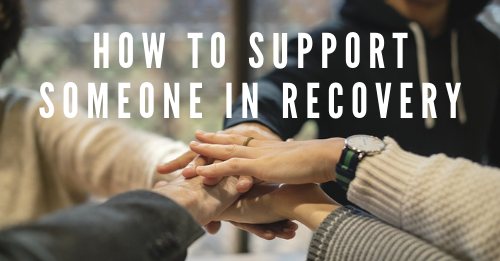Getting treatment for an addiction takes courage and resolve. People who can draw on the support of those around them have an easier time dealing with the challenges of Recovery. Knowing that someone believes in you and wants you to succeed can make all the difference during the daily struggles of overcoming an addiction.
If someone you love is in Recovery, you want to help them as best you can. There are proven ways to offer assistance that will reassure your loved one while also empowering yourself. The people on the sidelines of addiction can suffer almost as much as their loved ones, and showing support can be a critical way to heal.
The Importance of Supporting Someone in Recovery
Showing someone in Recovery that you care about them can give them the strength to attack this fight with all they have. Recovery is hard, and many people need something to motivate them to get through. Knowing they have a loved one who is rooting for them can help them stay focused.
People in Recovery need confidence that they can fight. A support system shows that person they are worth the fight and the investment of time. That can mean the world to someone looking for encouragement.
Six Ways You Can Support Loved Ones in Recovery
Here are six tips to support someone during and after Recovery:
- Tell the person you want to help: This may seem like stating the obvious, but it’s helpful to get your intentions out there. Saying “I want to support you” is a small but telling gesture and eliminates any doubt of your intentions.
- Ask what you can do: Your idea for providing support may not be the same as your loved one’s. In this case, you should take your cues from them, within reason. Don’t do anything you are uncomfortable with, but consider listening to their request for a ride to the doctor even if it doesn’t fit easily in your schedule.
- Say no sometimes: Support doesn’t mean blind acquiescence. There may be times when your loved one asks you to do something that won’t help their Recovery. Saying no is supportive because it keeps them move closer to their goals.
- Ask about their Recovery: It may be an uncomfortable subject to broach, but people need to talk about Recovery to continue with it.
- Keep in contact: Making yourself available to your loved one for check-ins and everyday conversations lets them know you want to help.
- Make sure your loved one has other supports: You can’t support someone in Recovery alone. Make sure they have other outlets, such as relatives, doctors and group therapy, to navigate this tough time.
How 7 Summit Pathways Can Assist You
Is someone in your life struggling with addiction? We can get them the individualized, evidence-based treatment they need while offering you support to help take care of them. Contact us today or schedule an appointment.
